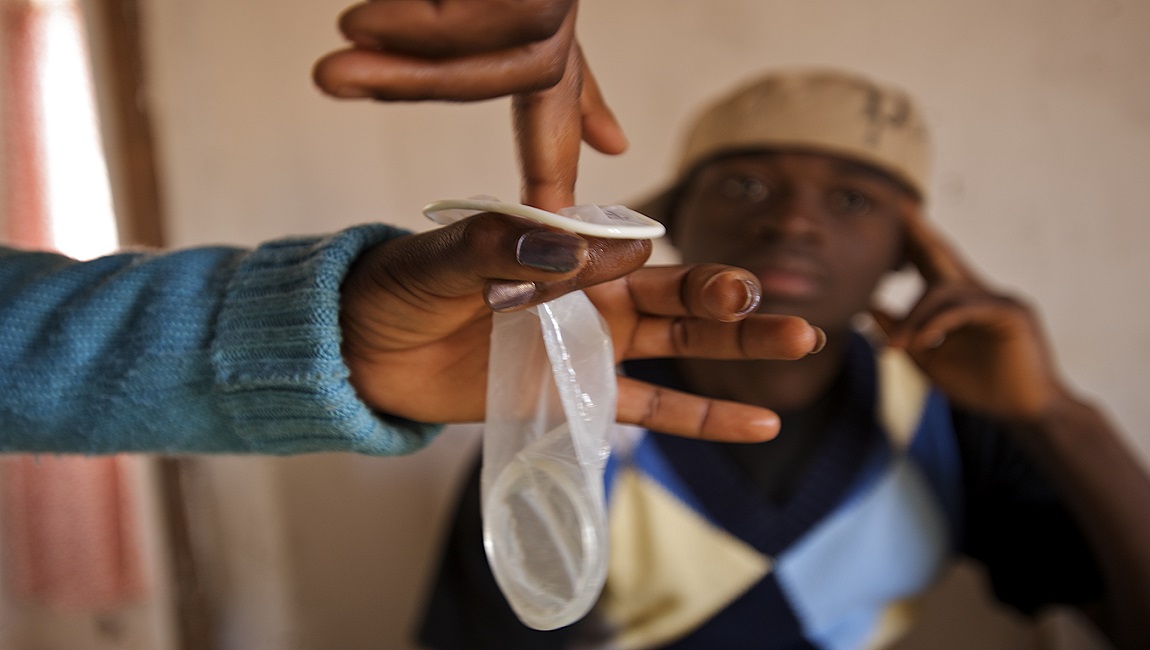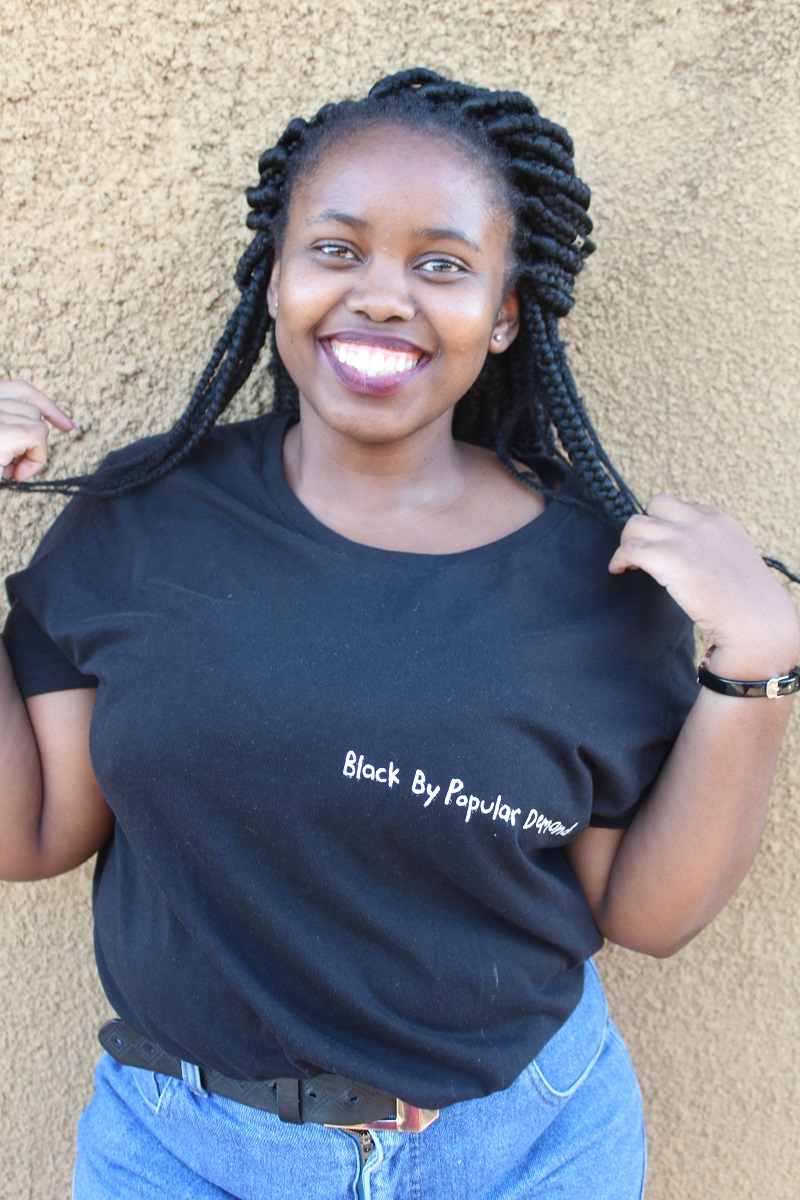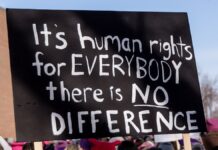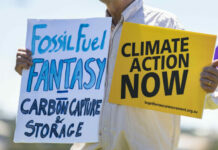
“It’s hard to be young and HIV positive.” Twenty-three-year-old Saidy Brown knows this all too well, writes MOSIBUDI RATLEBJANE.
At the age of 14, she was diagnosed with HIV. Along with that diagnosis, came the psychological demons. With nowhere to turn, she paved her own way to survival. But keeping a positive mindset while being positive, was a daily battle. Now she works tirelessly as a youth activist at South Africa Youth Positive (Y+SA). Her dream is to destigmatise HIV among young and old in her community in the North West province.

Brown has more than 18,000 followers across her social media pages, where she provides safe spaces for young people to talk about their experiences. Most are either infected or affected by HIV, and before meeting Brown, they had no one they could relate to and share their burden with. “There are very few places for us to talk and get counselling or therapy,” Brown says.
At a conference, Brown met a woman who told her about counselling sessions, clubs and support groups for young people living with HIV. None of these existed in Brown’s town of Itsoseng in the North West. It spurred her into action.
“In my small village we don’t have group sessions for young HIV positive people, that I know of. The only counselling I received was the pre-testing counselling and when I was first given my treatment,” Brown says. She turned to social media to spark conversations with other young people living with HIV, and soon started receiving hundreds of messages.
Many of the young people she heard from struggled with disclosure, and these hit close to home. “It gets hard to reply to messages concerning other people and talking about their challenges when I, myself, am going through my very own issues. I am only now realising that it’s okay not to reply to messages sometimes, if I’m not okay, or that it’s okay not to be okay for a day, and to practice self-care,” Brown says.
She recalls the “counselling” she received from a woman who tested her for HIV on a school trip. “The counselling I got did nothing for me. The lady asked me what my name and surname was and asked what I would do if I found out I was HIV positive. I don’t think that amounted to counselling, because nothing she said at that moment would have prepared me to understand all the thoughts, challenges and misinformation I would face from then onwards.”
“You don’t just tell a 14-year-old on a school trip they have tested HIV positive and that’s all. Even 40-year-olds would struggle hearing that kinds of news.” Brown believes more should be done to inform and support young people about HIV irrespective of their status as empathy is something everyone could benefit from.
She says much of her struggle has been psychological and emotional. “In 2015, I had a lot of resentment towards my late parents, my aunt and family, as well as God. While alone in my flat in Potchefstroom, I took a handful of my ARVs (Antiretrovirals) attempting to take my life. I then took a nap, thinking I was preparing myself to die, but I woke up a few hours later feeling weak and not well. When I got to the clinic and told the nurses, they just thought I had defaulted, because my viral load had gone up again,” she recounts.
It is estimated 12.2 million children have lost one or both parents to an Aids-related causes. This represents 9% of all orphaned children in the world. According to the United Nations Children’s Fund (UNICEF), three million children and adolescents under the age of 19 were living with HIV in 2017. Brown says this proves there is an urgent need to change the narrative around HIV.
“In as much as we need to prevent more new infections, we need to change the mindsets of those who are already infected. We cannot have the only narrative being that unprotected sex equates to HIV. Yes, unprotected sex does increase the chances of getting infected. But that can’t be the only narrative that we talk about, because people start being deafened and desensitised to the message. There are other things about HIV you should know, like viral suppression, PREP (Pre-exposure Prophylaxis) and treatment. That way, as a HIV positive young person, there is something you can look forward to, and interactions with nurses are not limited to just testing, but empowering young people as well.”
A positive HIV diagnosis can throw one’s life into disarray, because of the fear and uncertainty that accompanies it. “It’s hard to be young and HIV positive and keep positive at the same time. Earlier this year I was overwhelmed and had suicidal thoughts again – I didn’t attempt anything this time. But I would find myself crying in the mornings wishing I had died in my sleep, crying because I woken up,” Brown explains. A friend has recommended she speak to someone, like a psychologist.
“I think as human beings we actually think we are immune to being infected with HIV, until we find ourselves at major risk of being exposed to HIV or are already infected. Similarly, young people believe they are invincible, until it becomes a real situation,” says Brown.
“Young people don’t know that adhering to your treatment may lead to viral suppression and an undetectable viral load means an untransmittable one. So, if conversations like this are not happening, young people will continue to struggle with the stigma and fear, and possibly depression.”
On 29 November 2018, UNICEF will be launching the global statistical update on HIV/AIDS in Johannesburg. See it live on UNICEF Africa’s Facebook page.
Mosibudi Ratlebjane is a writer based in Johannesburg.








